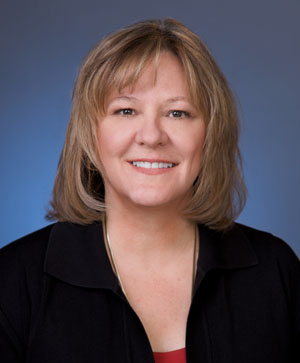From The Orange County Register
By Angie Marcos, Staff Writer
 Grace Mucci wanted to be a marriage and family therapist. While attending Cal State Fullerton in 1987 to obtain a master’s degree in counseling, she sat in a family therapy course, in which the professor would talk about her time spent at Children’s Hospital of Orange County for a post-doctoral fellowship.
Grace Mucci wanted to be a marriage and family therapist. While attending Cal State Fullerton in 1987 to obtain a master’s degree in counseling, she sat in a family therapy course, in which the professor would talk about her time spent at Children’s Hospital of Orange County for a post-doctoral fellowship.
It was because of that class that Mucci changed her career goals and decided she wanted to work at CHOC.
“Cal State Fullerton definitely had a role in leading me to CHOC,” said Mucci, 55, a pediatric neuropsychologist. The CSUF professor “would share some of her amazing experiences at CHOC with us. She really taught me how to be a good psychologist and the value of working together as a team.”
Mucci has been working at CHOC in various forms since 1993, when she began an internship at the hospital.
Five years ago, Mucci was named coordinator of the neuropsychology program at CHOC.
In this position, Mucci coordinates all of the program’s services.
She also regularly sees children and young adults ages 6 to 22 for therapy, in which she teaches them stress-management and self-care skills.
Mucci’s studies and research focus on oncology and epilepsy in children and young adults, such as how a brain injury can affect day-to-day behavior like language or the long-term neurocognitive effects of cancer.
“My favorite part about my job is the kids. I get a lot of positive energy from them,” Mucci said. “They really keep me in the moment. I learn so much from them.”
“I work with such great people at CHOC,” Mucci said. “Everyone at CHOC is so passionate about what they do. The kids always come first.”
In October, Mucci and a colleague developed and managed a 12-week cognitive remediation program for children with cancer.
The program used group therapy to improve coping skills, improve mood and help facilitate adjustments in children ages 11 to 15.
“It actually surprised us how beneficial it was for kids to talk with other survivors their own age who have had similar experiences,” Mucci said. “I believe they felt so much more understood.”
Because of its success, Mucci is working on setting up a similar program for children ages 6 to 10.
“I don’t ever get used to it,” Mucci said of working with children with chronic illnesses. “It helps me to remember what is most important in life. It is not about the car you drive, the house you own or how much money you make. It’s so much more than that.”
“It is difficult to see them struggle,” she said of the patients. “I have the utmost respect for them.”
As the neuropsychology program coordinator, Mucci helps train students in the post-doctorate pediatric psychology and neuropsychology fellowship programs at CHOC.
She teaches students how to conduct interviews with children and how to speak with parents about results.
Part of her job is helping parents understand and adjust to their child’s illness, Mucci said.
“We have to help the whole family,” she said. “The parents need to know how to manage their child’s adjustment issues.”
While helping children is the goal, the biggest challenge she and other professionals in the care-giving-field face is compassion fatigue, she said.
“The cost of caring deeply can lead to physical and emotional strain,” Mucci said. “I am constantly making sure that I am keeping that in check.”
Compassion fatigue can occur when caregivers focus too much on others without practicing self-care.
Mucci works hard to stay active to avoid the fatigue.
Contact the writer: amarcos@ocregister.com











